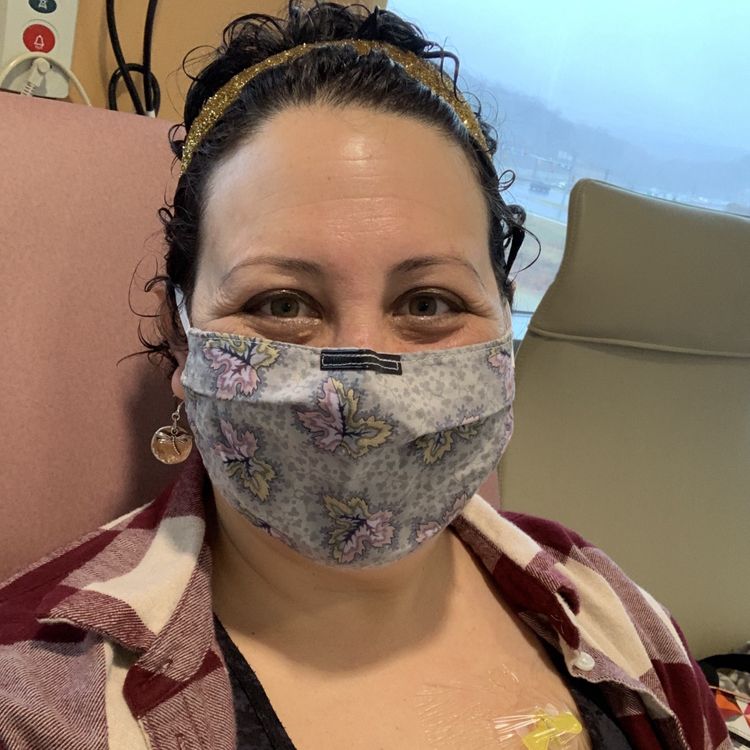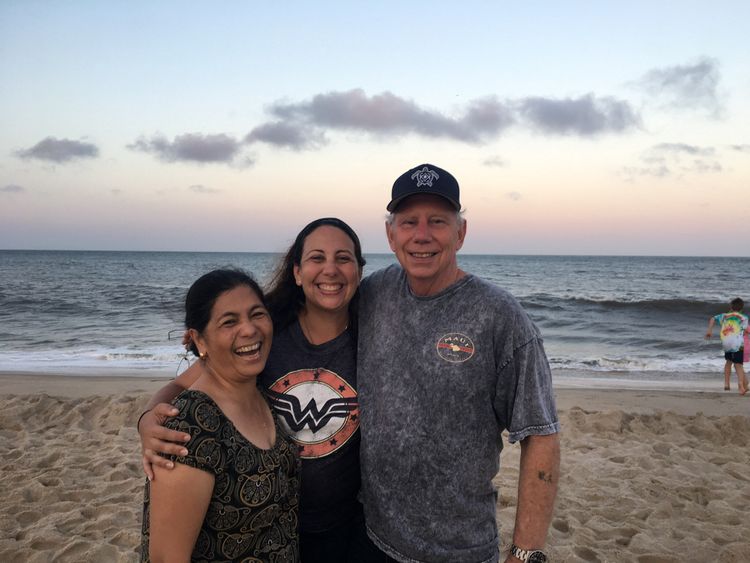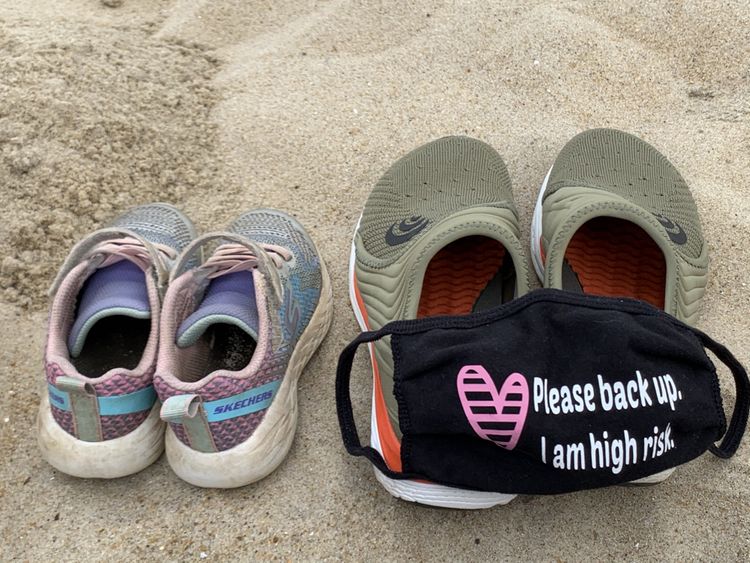Cancer Diaries: Why Won’t You Acknowledge My Grief?

I don’t want you to fix it; bring me tea and honey instead

Do you remember that scene in the Pixar movie Inside Out where Joy realizes that in order for Riley to find Joy that she also needs to have Sadness? Joy realizes that while she kept trying to keep Sadness in a tight little box, muting her importance, Sadness was a key member of Riley’s identity.
As Joy tries to find happy memories for Riley, she stumbles upon the importance of Sadness. It is Sadness who lights the way to show others when Riley needs help. It’s through Sadness that Riley is able to find Joy. What a profound idea shared through an animated movie.
Sometimes it is through sadness that we find our joy.
When I was diagnosed with breast cancer a year ago in February 2020, it was a surreal experience. Everything from the first time I felt the lump in my breast to when I met my breast health care team, through my lumpectomy, and up until I finished chemotherapy and radiation had me feeling like I was having an out-of-body experience. This couldn’t be happening to me, could it?
My mind was numb and I felt incredible grief, blaming myself that I had failed my body and in turn failed my family. I had done everything right, or so I thought. I ran, ate healthy meals (more veggies, less sugar), used clean makeup and laundry detergent. And yet I was diagnosed with breast cancer.
I needed time to grieve my situation. I needed time to grieve both the time lost and the time that I would lose due to my new, and hopefully temporary, normal of almost a year of surgery, procedures, appointments, and treatments. Nonetheless, it would take up an inordinate amount of time.
I am one year from my diagnosis and I’m still in active treatment.
Yesterday, while I sat in the infusion chair, I asked my nurse when my port would be taken out. I still have six weeks of treatment left. She said that at the very least, it would be another 6 months to a year before I could have my port removed. The doctor will want to make sure that I don’t have a relapse. That means more than 18 months of dealing with cancer…not including the 4 more years of a daily pill that blocks the estrogen positive receptor cancer cells, while also affecting my joints and energy levels.
I still have another four years before I am willing to claim survivorship. Until then, I am a cancer patient.
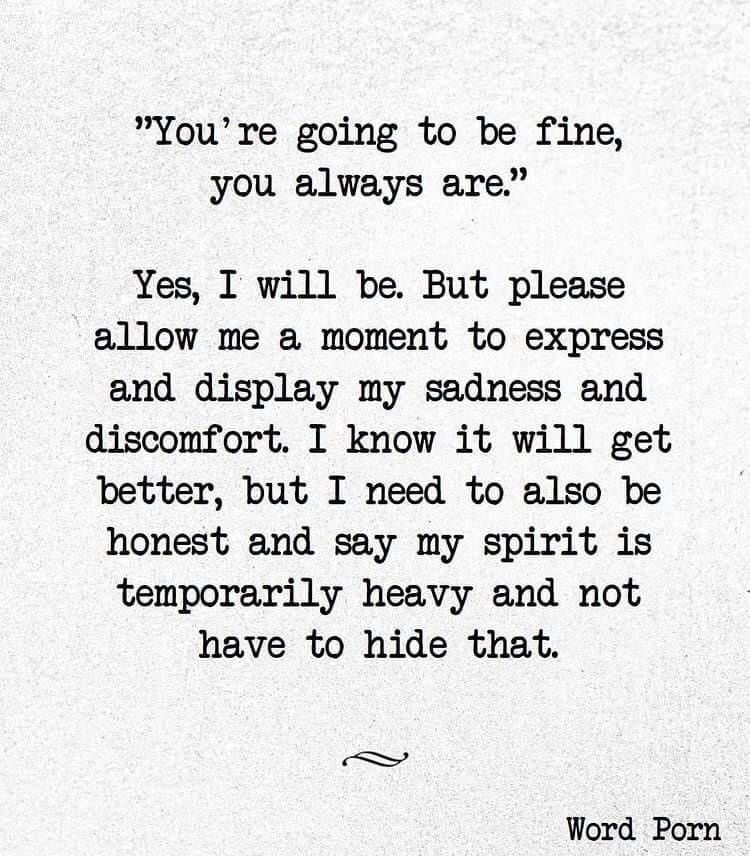
Cindy, a fellow “breastie” in one of the worst clubs in which we are unwilling participants (the breast cancer club), shared these words with our wonderful support group while waiting for her radiation treatment, and it really hit a nerve with me:
“‘You’re going to be fine, you always are.’
Yes, I will be. But please allow me a moment to express and display my sadness and discomfort. I know it will get better, but I need to also be honest and say my spirit is temporarily heavy and not have to hide that.” — Word Porn
This “you’re going to be fine” sentiment is not helpful when I feel like I’m spiraling. It’s not helpful when I think I might die because of my diagnosis. It’s not helpful when my children are scared. It’s not helpful when I feel helpless in a situation. It doesn’t acknowledge my anguish and my grief. It does not acknowledge my fury.
While I know that I will do everything to kick cancer’s ass and maybe one day I’ll be able to look back to this moment and know that I was a warrior, right now I don’t feel any of that. Right now, in this moment of diagnosis and treatment, I am furious at my situation and I feel like I have no control over my own body which has rebelled against me.
While I did look for the good in the situation (after getting my diagnosis I said and still say it was the best of the worst — the best news in the worst situation), it still makes me angry when loved ones refuse to acknowledge my anger and grief as if acknowledging it would make it more “real.”
I have news for them, breast cancer is real and I have it.
Instead, they tell me to “think positive thoughts” or “look for the good.” While I understand that this comes from a place of both love and fear, it is infuriating when they do not acknowledge that I could be and should be angry, that anger and grief are okay.
I resent having my feelings put into a little box because my situation makes others uncomfortable, sad, and fearful. By brushing aside my feelings to make themselves feel better, I felt that I wasn’t “allowed” to feel anything but hopeful.
But you know what?
It’s OKAY to be pissed as hell. It’s OKAY to cry. It’s OKAY to want someone to acknowledge your fear, grief, and anger.
I didn’t need anyone to fix the situation…well, I mean, I did. I wanted my oncologist and surgeon to fix the situation, but I didn’t need my friends and family to “fix” it. That’s why I have doctors and specialists.
I need my friends and family to be there for me; to be able to tell them I feel like hell, that I’m scared beyond measure, and that I’m frustrated.
I had a couple of friends offer to drive me to appointments, sit with me during my infusions, or babysit the kids so they wouldn’t be stuck home alone for hours while I went to treatment. Thanks to the pandemic, and being immunocompromised, we couldn’t accept any of that gracious in-person help.
My little family pulled together and my kids did the best they could with their fear without friends or school to distract them. My husband took over all the household chores, caring for a very ill wife, while still working full-time on the biggest project of his career.
I’m
Instead of the in-person support, I did get wonderful meals that I felt incredibly guilty for accepting, but also incredibly grateful that it took one chore off our plates, the “What are we going to have for dinner tonight?” and the actual making of the meals. Sometimes we would receive a surprise treat like cupcakes or donuts when we least expected it. My kids loved that and it was nice to have treats when it felt like we were living in a prison created by having cancer in a pandemic.
After my grief, I was able to find joy, the silver lining to our situation. It was in the prayers and letters I received. It was when my sisters took turns visiting us or when they came over for a fire pit in the backyard.
The joy came in the form of meals, prayers, texts, books, and visits (masked and distanced). It’s what I needed. That is what helped me to think positively, to feel loved, supported, and acknowledged.
We didn’t need to talk about cancer to acknowledge it. Telling me to think positive thoughts…not helpful. Giving me something to think positively about…very helpful.
It’s not the words, it’s the action.
I never wanted you to fix it; that’s not your job. I just wanted you to sit with me in my grief; to support me until I could move on. You didn’t need to say anything, just be there.
“I don’t feel very much like Pooh today,” said Pooh.
“There, there,” said Piglet. “I’ll bring you tea and honey until you do.”
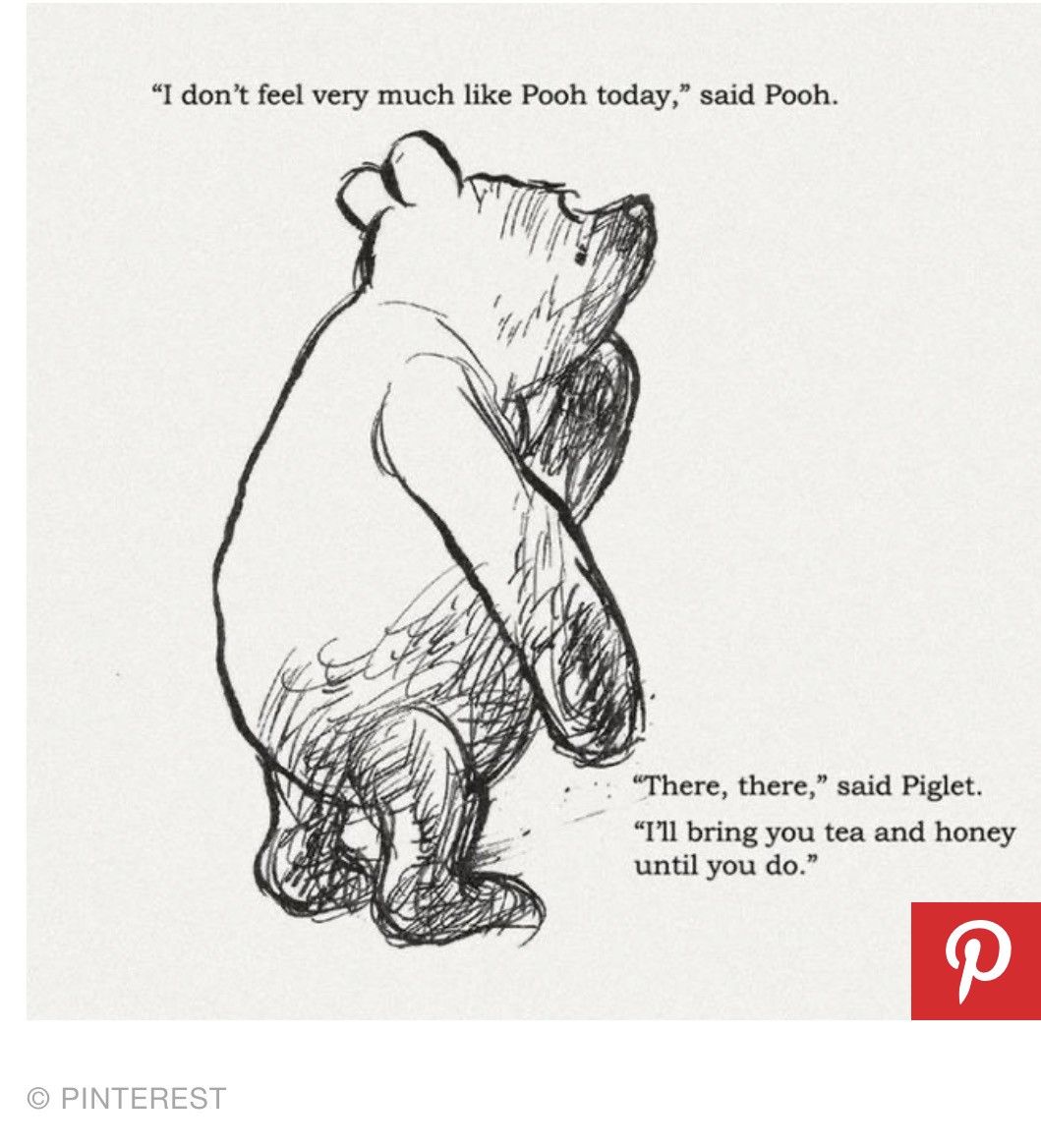
.

